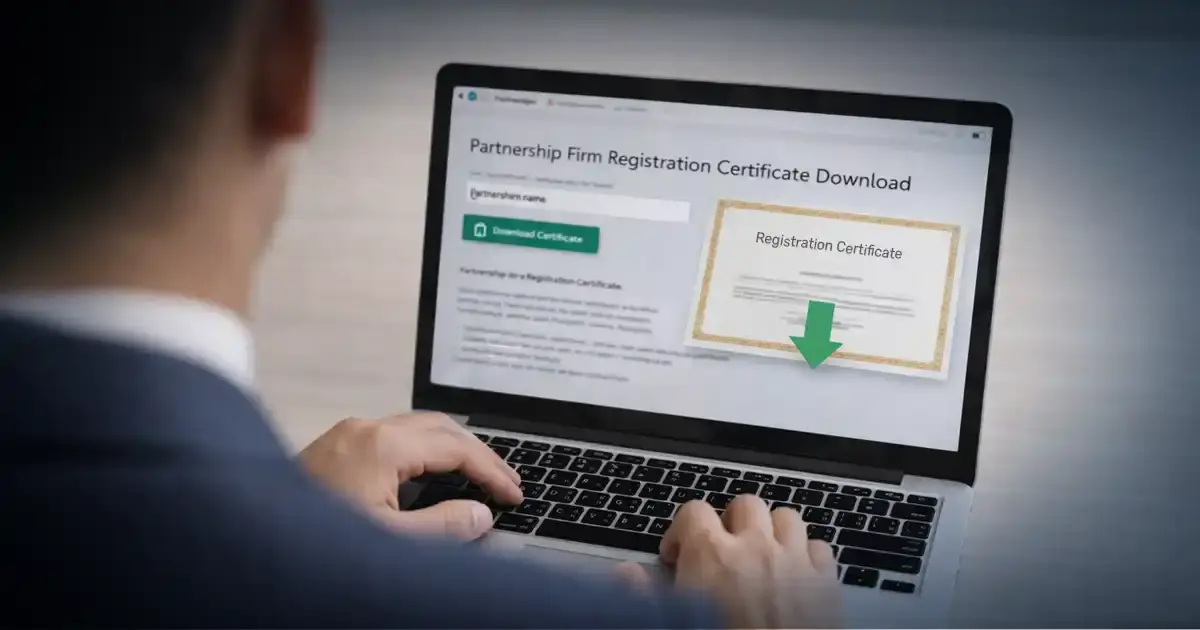
In today’s business world, every registered company needs to have a unique identity, and one of the essential documents for identifying a business is the Company PAN Card. This card, issued by the Income Tax Department, serves as a vital tax identification for businesses, ensuring corporate tax compliance and establishing the company’s legal presence. Whether your company is new or well-established, obtaining this card is necessary for engaging in a variety of official and financial transactions.
It is not just a statutory requirement but also an essential document for conducting various activities, such as paying taxes, filing returns, opening a bank account, and handling other legal and regulatory requirements. Without it, businesses face difficulties in complying with tax laws and might also face legal penalties.
This article will guide you through obtaining a company PAN card, its mandatory nature, its benefits, and some common issues businesses face while applying for one. Additionally, we will explain how it serves as a business identity proof, which is crucial for financial transactions, and provide insights into the tax registration process for companies.
What is a Company PAN Card?
A Company PAN Card is a unique 10-digit alphanumeric code provided by the Income Tax Department to businesses or corporate entities. It functions as the company’s tax identification number, which is crucial for filing taxes and maintaining corporate tax compliance. It acts as a permanent record for tax-related activities and is used to track all financial transactions conducted by the company.
A PAN for firms is required for several official purposes, including paying taxes, receiving government contracts, opening business bank accounts, and even filing for import/export licenses. It serves as a business identity proof that is recognized nationwide and is a mandatory requirement for all registered businesses.
Why is PAN Mandatory for Companies?
It is not just a formality but a legal obligation for businesses. Here are some key reasons why obtaining this card is mandatory for businesses:
- Tax Filing and Payments: All companies are required to pay taxes, including income tax, GST, and other applicable taxes. It ensures the smooth filing of returns and payment of taxes promptly.
- Business Identification: It serves as the official identity of the business, enabling the company to engage in various financial and legal transactions like opening a business bank account, securing loans, and applying for government contracts.
- Legal Compliance: Without this card, businesses are unable to legally operate in compliance with tax laws. Non-compliance can result in penalties, fines, and even business suspension.
- Preventing Fraud: It helps prevent fraudulent activities, ensuring that the company’s financial transactions are transparent and traceable by government agencies.
- Claiming Tax Benefits and Deductions: Businesses that have this PAN card can easily avail of tax benefits, such as claiming deductions and exemptions provided by the government.
- GST Registration: It is a prerequisite for registering under Goods and Services Tax (GST). Without a PAN, a business cannot legally engage in the sale and purchase of goods or services.
Here’s a breakdown of which businesses must apply for a company PAN card in India:
1. Private and Public Limited Companies
All registered companies in India must have a PAN card in the company’s name. It’s mandatory for filing income tax returns, opening a current bank account, and conducting high-value transactions.
When you apply for a company PAN card online, you’ll need to submit the Certificate of Incorporation, Company Registration Number (CIN), and Company PAN card documents, such as proof of address and the company’s constitution documents.
Partnership firms and Limited Liability Partnerships (LLPs) also require a PAN card to carry out financial activities like filing tax returns, entering into contracts, or receiving payments. Without a valid company PAN card number, the firm cannot comply with TDS or GST obligations.
Although the business and the proprietor are treated as one legal entity, the owner may still choose to have a PAN card for the company name (especially if the business operates under a registered trade name). This helps maintain financial clarity and enables smoother business operations.
Any registered trust or non-profit organization involved in financial activities must have a PAN card to receive donations, open bank accounts, and comply with statutory audit and tax requirements.
If a foreign company earns income in India through a branch, liaison office, or project office, it must obtain a PAN card for foreign company registration. The documents required for a PAN card application for a foreign company include the company’s registration certificate (attested by the Indian Embassy), proof of address in the home country, and authorized signatory identification.
How to Apply for a PAN Card for a Company?
Applying for a company PAN card is a simple process, but it requires accuracy and the proper documents to avoid any delays or rejections. Here is a step-by-step guide to applying for a PAN card:
- Choose the Correct Application Form:
- For an Indian company, you need to fill out Form 49A.
- For a foreign company, you need to fill out Form 49AA.
- Fill in the Application Form:
- Go to the official website of the Income Tax Department or authorized service providers like NSDL and UTIITSL.
- Select the option “Apply for PAN Card” and choose the application type for a company.
- Submit the Required Documents: The documents you need to submit include:
- Certificate of Incorporation or Partnership Deed (for partnership firms).
- Proof of Identity of the company’s directors.
- Proof of Address (e.g., utility bills, bank statements).
- Proof of the Authorized Signatory (e.g., the person authorized to sign on behalf of the company).
- Make Payment: There is a nominal fee associated with the application. Pay the fee online through net banking, debit/credit card, or other available methods.
- Receive Acknowledgment: After applying, you will receive an acknowledgment receipt. This receipt should be kept for future reference until your company’s PAN card is processed.
- Receive the PAN Card: Once your application is processed and approved, it will be sent to the registered address of your company.
You can also download the PAN Card for companies efficiently by following the quick steps. Check out the blog on Step-by-Step PAN Card Online Download for the detailed account.
Documents Required for Company PAN Card
When applying for this, it is essential to submit the correct documents for verification. Here’s the list of documents required:
- Certificate of Incorporation: A copy of the Certificate of Incorporation issued by the Ministry of Corporate Affairs (MCA).
- Proof of Address: Official documents such as utility bills, property tax receipts, or bank statements to confirm the company’s registered address.
- Identity Proof of Directors: PAN cards of the directors or authorized signatories of the company.
- Partnership Deed (if applicable): For partnership firms, submit the partnership deed.
- Board Resolution: In case of limited companies, provide a board resolution authorizing a person to apply for the PAN.
- Photographs: Passport-sized photographs of the authorized signatory.
You can also change any details, such as address, name, or even correct your Company’s PAN Card. Read the PAN Card Correction Form blog and get your details updated quickly.
Or take the easy way out and consult with an expert from RegisterKaro. Contact now!
When a company’s PAN card is used for international business or legal purposes — such as opening a foreign bank account, setting up a branch abroad, or dealing with overseas clients — it often requires an Apostille. An Apostille certifies the authenticity of the document so it is legally recognized in countries that are part of the Hague Convention.
Here’s the step-by-step process of Apostille for the Company PAN Card:
- Notarization of the PAN Card Copy: The first level of authentication involves getting the company’s PAN card documents notarized by an authorized notary public. This confirms that the copy is genuine and matches the original company PAN card details.
- Verification by MEA (Ministry of External Affairs): After notarization, the document must be submitted to the MEA for Apostille. The Ministry will affix an Apostille stamp, confirming that the company’s PAN card number and credentials have been verified and are legitimate for international use.
- Optional Embassy Attestation (if required): For countries not under the Hague Convention, you will need embassy attestation instead of an Apostille. The document will be attested by the respective country’s embassy after MEA verification.
Apostilled company PAN card documents help establish your company’s financial and tax identity internationally. Whether it’s for compliance, foreign transactions, or overseas expansion, this step validates your business’s authenticity beyond Indian borders.
Fees for PAN Card For a Company
Applying for a PAN Card for a company is a simple and affordable process. The company PAN card charges depend on whether you are applying online or offline, and whether your registered office address is in India or outside India.
As per the latest guidelines by NSDL and UTIITSL, the fees for a company’s PAN card application are as follows:
- For Indian Companies: ₹107 (including GST) if the communication address is within India.
- For Foreign Companies: ₹989 (including dispatch charges) if the company’s address is outside India.
These charges apply when you apply for a company PAN card online using the Form 49A (for Indian entities) or Form 49AA (for foreign entities).
Uses and Benefits of a Company PAN Card
It is one of the most important documents for businesses in India. Here’s a detailed look at the uses and benefits:
- Tax Filing: It ensures smooth tax filing for businesses. Companies must file their income tax returns annually, and the PAN card makes this process easier.
- Opening Business Bank Accounts: A PAN card is required to open a corporate bank account. Without this card, banks will not allow businesses to operate their accounts.
- GST Registration: It is mandatory for tax registration under the Goods and Services Tax (GST) Act.
- Claiming Tax Benefits: It helps businesses claim tax exemptions, deductions, and rebates, which can result in significant savings.
- Transparent Financial Transactions: It ensures that your financial transactions are recorded and traceable by tax authorities.
- Preventing Tax Evasion: Businesses are prevented from evading taxes, as all transactions are linked to the PAN number.
Challenges & How to Avoid Them While Filling PAN Application
Whether you are applying for a new company PAN card or updating details, it’s important to understand the common challenges and how to avoid them.
One of the most frequent issues during the company PAN card process is submitting incorrect or incomplete information—such as spelling errors in the company’s legal name or mismatched incorporation details.
Tip: Always cross-check your Certificate of Incorporation, Memorandum of Association (MOA), and Articles of Association (AOA) before submission. Ensure the name and address exactly match those in your incorporation documents to avoid discrepancies.
Many applicants face delays because they fail to provide the correct company PAN card documents required. Missing the authorized signatory’s ID proof or not self-attesting documents often leads to rejection.
Tip: Keep all company PAN card documents ready—Certificate of Incorporation, proof of registered office address, and authorized signatory’s ID and address proof. For foreign companies, additional documents required for a PAN card application for a foreign company include a certificate of registration issued by the foreign government and proof of the authorized representative’s identity in India.
Using the wrong company PAN card form or incorrect company PAN card format can cause unnecessary confusion. Indian companies must use Form 49A, while foreign companies should use Form 49AA.
Tip: Double-check which form applies to your business type before you apply for a company PAN card online.
When applying online, failing to upload a valid Digital Signature Certificate (DSC) of the authorized signatory is a common error that leads to rejection.
Tip: Before you apply for a company PAN card, ensure that your DSC is valid and registered with the same name as the company.
Outdated or incorrect address entries can delay communication from the Income Tax Department, especially when you need to download the company PAN card or make future updates.
Tip: If you’ve relocated, use the company PAN card correction online option to change your address immediately.
Many business owners mistakenly use personal details instead of company credentials.
Tip: Remember, there’s a clear difference between an individual PAN and a company PAN card—the latter is mandatory for all entities registered under the Companies Act, as it’s used for taxation, GST registration, and other official filings.
7. Lack of Clarity on Fees
Sometimes, applicants are unaware of the company’s PAN card charges, leading to incomplete payments and delayed processing.
Tip: Check the latest government fees before submission. You can also track and check the company’s PAN card details online once your application is processed.
In conclusion, obtaining a company PAN card is a crucial step in the tax registration process for businesses in India. It is mandatory for corporate tax compliance and serves as the official business identity proof for conducting financial transactions, paying taxes, and ensuring legal compliance. By following the steps outlined in this article, businesses can easily apply for it and enjoy the many benefits it offers, including seamless corporate tax compliance, tax filing, and business identity verification.
Why Choose RegisterKaro?
RegisterKaro is your trusted partner for navigating the PAN card application process for your business. Our expert team provides personalized assistance to ensure that your company’s PAN card application is submitted correctly and without delay.
Frequently Asked Questions
It serves as the tax identification number for businesses, required for tax payments and filing returns.




